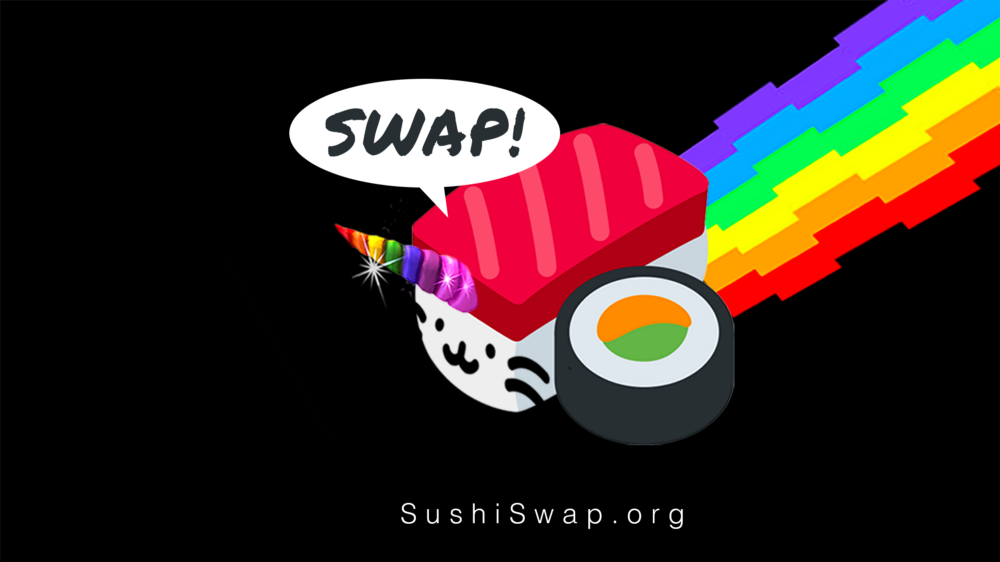- SushiSwap, a popular decentralized exchange (DEX), is the newest DeFi startup to join Avalanche’s $180 million reward program
- Other layer 1 blockchains, such as Solana and Terra, has made news as they try to cash in on the multibillion-dollar DeFi business
- According to a press statement, SushiSwap’s inclusion in Avalanche’s Rush program would allow SushiSwap and the Avalanche Foundation to each distribute up to $7.5 million worth of AVAX and SUSHI tokens to liquidity mining incentives over the next three months
SushiSwap, a popular decentralized exchange (DEX), is the newest DeFi startup to join Avalanche’s $180 million reward program. Avalanche Rush has already drawn Aave, a lending protocol, and Curve, an automated market maker. Ava Labs created the Avalanche blockchain, which is a proof-of-stake blockchain. It promises to be able to execute 4,500 transactions per second without the security considerations often associated with fast-transferring blockchains. According to Messari statistics, the price of AVAX, Avalanche’s native token, has increased by more than 300 percent in the previous seven days, indicating that Avalanche Rush has improved investor trust in the layer 1 blockchain that debuted its mainnet last September.
Other layer 1 blockchains, such as Solana and Terra, has made news as they try to cash in on the multibillion-dollar DeFi business. Layer 1s are the blockchain networks that are used to build financial applications, with Ethereum being the most popular. Institutional investors have been more interested in the DeFi industry, and several major venture capital companies have made significant investments in Ethereum alternatives that provide greater expansion potential.
Solana, for example, recently received $314 million from investors such as Andresseen Horowitz (commonly known as a16z) and Polychain Capital through a token sale. Galaxy Digital, Beijing-based crypto mining equipment producer Bitmain, a16z, and Dragonfly Capital are among the investors in Avalanche, which has raised $60 million through private and public token sales. The layer 1 rivalry has been heating up as platforms continue to provide lucrative incentives to attract both DeFi projects and users, thanks to the enormous amount of investment in the industry.
According to a press statement, SushiSwap’s inclusion in Avalanche’s Rush program would allow SushiSwap and the Avalanche Foundation to each distribute up to $7.5 million worth of AVAX and SUSHI tokens to liquidity mining incentives over the next three months. When DeFi users commit assets to a system, they are rewarded with new tokens known as liquidity mining. Since last year’s DeFi Summer, such prizes have been the preferred method for DeFi projects looking to recruit new members. According to the announcement on Tuesday, while SushiSwap has been deployed across multiple blockchains, Avalanche is one of the new platforms that delivers SUSHI token rewards outside of the Ethereum network.
Sushi’s primary contributor, 0xMaki, stated in a statement, the Avalanche community is one of the most compelling reasons to align incentives with the Avalanche chain. Another blockchain, Solana, announced the introduction of staking pools in late July, where holders of SOL tokens may receive incentives and contribute to the security of the Solana network by staking their holdings. Some of the prizes may be utilized in Solana-based DeFi protocols, such as Raydium, an AMM that just launched an incentive campaign in which users can earn extra native tokens called RAY in addition to the existing incentives.
Ethereum is still the king of layer 1 with over 200 protocols. According to DeFi Llama, the total value locked in Ethereum at the time of writing was about $119.8 billion, moreover five times the total value locked in Binance Smart Chain, the second-largest blockchain by that criteria. Blockchains appear to be very sticky, as switching between ecosystems is both unintuitive and cumbersome, and interoperability between chains is quite weak in its current state, said Nate George, crypto-asset analyst at Cumberland, the Chicago-based crypto trading unit of trading firm DRW Holdings.
George mentioned that he believes there is a case that as interoperability infrastructure improves, the distinctions between whatever chain one is on will blur and be abstracted away from the end-user experience. Avalanche unveiled Avalanche Bridge, a new cross-chain technology to replace its existing Avalanche-Ethereum bridge, at the end of July. According to an Avalanche Medium article, the new connection would enable a seamless user experience for DeFi platforms to join Avalanche, with improved security and lower transaction costs.

With a background in journalism, Ritika Sharma has worked with many reputed media firms focusing on general news such as politics and crime. She joined The Coin Republic as a reporter for crypto, and found a great passion for cryptocurrency, Web3, NFTs and other digital assets. She spends a lot of time researching and delving deeper into these concepts around the clock, and is a strong advocate for women in STEM.


 Home
Home News
News










